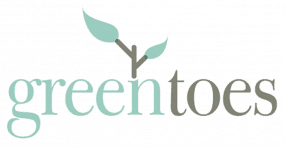The not-so-secret key to healthy and young-looking skin is collagen. This protein is vital in giving that support that helps to keep the skin firm and plump.
The bad news is as we age, the body’s reserve of collagen declines. The good news is there are ways to stimulate and boost the skin’s collagen production.
What Is Collagen?
Let’s start off by looking at what collagen is. Collagen is a protein that aids in building just about every part of our body. From tissues and organs to bones, skin, and even our teeth.
It acts like glue to bind our cells and tissues together, gluing our cells and tissues together to help them keep their shape, strength, and elasticity. In fact, that function is what gives collagen its name, from the Greek word for glue, “kolla.”
It probably is of no surprise that most of your body’s collagen is found in the dermis, the second layer of the skin. There are 28 different types of collagen in the body. However, most of your collagen will be either Type I, II, or III.
Collagen Types
Collagen Type I is the most common type in your body. The fibrils that make up this collagen are five to ten times stronger than steel according to lab studies. Type I is amazingly flexible and can stretch considerably before breaking. It provides the structural support your body needs in the bones, organs, and connective tissues.
Next, there is Type II. This is what makes up cartilage. Where Type I is orderly in its structure, Type II is far less orderly. It is this disorder that gives the cartilage in your nose and joints its springy and flexible qualities.
Type III is found in the lymph nodes and bone marrow. This collagen provides support for the cells that are involved in blood cell production. It also plays a key role in wound repair.
What Does Collagen Do?
Now, let’s look at what collagen does for the skin. Collagen fibers provide that strength, elasticity, and support you need to have firm, youthful, and ample skin.
With the fibers of collagen having a strong, braid-looking composition, they act as the beams and support that hold up the upper layer of skin (therefore they are most commonly found in the second layer of skin) and gives it that youthful appearance. As we age, and collagen is not produced as much, that support erodes leading to sagging skin.
Along with elastin and hyaluronic acid, collagen forms a flexible and tight network that gives your skin its firmness. When you have ample collagen, your skin is not sagging; as your reserves of collagen deplete, you will start to see wrinkles and fine lines.
Ever notice that as you age you start seeing more stretch marks and cellulite? That is because collagen keeps the skin elastic and hides those in the skin. The less collagen you have, the more visible those things are.
Why We Lose Collagen
So, why do we lose collagen? To start with, once we hit our twenties, we lose about one percent of our collagen per year. This is through the body’s natural process. It tends to slow down and stop the production of collagen and accelerate the breakdown of new collagen. Since it takes the body six months to make new collagen, our body cannot keep up.
Couple that with environmental factors, unhealthy lifestyle habits, stress, and pollution and you can really lose a lot of collagen much faster than it will ever be replaced. This loss of collagen is what gives the skin and body its visible signs of aging.
So, the trick is to find a way to add items that will boost the production of collagen while minimizing the factors that reduce collagen. Greentoes is an expert on this.
If it were possible to add collagen directly to the skin, then it would be wonderful and make this simple. But collagen is too large of a molecule to penetrate the skin and be absorbed by the body. So, we have to look at other ways to stimulate collagen levels.
Topical Collagen
First, let’s trick the skin with topical applications that contain collagen peptides. These are smaller amino acid chains that have less trouble being absorbed by the skin. Once they reach the dermis they provide the skin with the tools it needs to produce new collagen.
Then look for products that are rich in retinol or healthier natural retinol alternatives that are used at Greentoes. This turns on the genes and cells involved in collagen production. So, it is a sort of jump start for the collagen-making machine.
And then we have an old reliable, Vitamin C. Vitamin C not only helps in the production of collagen, but it also stabilizes the collagen you already have. Meaning that Vitamin C will greatly boost new production and help increase the life span of your existing collagen reserves.
And, if you also look for products rich in antioxidants, ferulic acid, and Vitamin E you can boost the effectiveness of Vitamin C by at least 8 times.
Sound complicated? It doesn’t have to be. Trust the skin experts at Greentoes in Tucson to help you find the perfect organic product for your skin.

